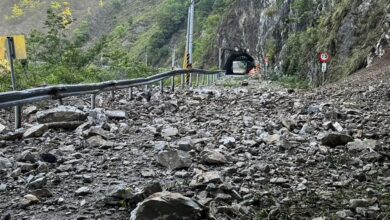Turkey Foreign Ministry: Impotent Negotiator ?


The Turkish foreign minister Ahmet Davutoglu and PM Tayyip Erdogan are struggling to counter perceptions of impotence in the face of upheavals in the Arab world.
In recent years Turkey’s foreign minister Ahmet Davutoglu has won admiration and derision in almost equal measure for his policy of “zero problems with the neighbours”.
But as Turkey prepares to greet an influx of refugees from Syria, whose President Bashar al-Assad ignores Ankara’s pleas for reforms, observers argue the uprisings in Syria and across the Middle East have tarnished Turkey’s self image as a regional power broker.
Turkey Syria Relations : Turkey’s Confidence Shattered
Davutoglu has sent delegations to convince the administrations of Syria, Libya and Iran, as well as to liaise with Hamas and Hezbollah and other groups traditionally stonewalled by western diplomats.
But having the world watch dictators like Muammar Gaddafi and Assad thumbing their noses at Ankara has revealed an impotence in Turkey’s foreign office, said Gerald Knaus, head of the European Stability Initiative in Istanbul. “Recent events have relativised Turkey’s confidence in its diplomacy. All the effort they made to forge personal links with these regimes has not given them the leverage they hoped for,” said Knaus.
“Turkey was over-confident about its mediating ability,” said Cengiz Aktar, professor of EU studies at Bahcesehir University in Istanbul. “But the formula was wrong right from the beginning. We know from history you can’t talk a dictator into reforming.”
Syrian Refugees Target Turkey’s Democratic Presence
Yet the stream of refugees flooding across the border from into Turkey shows the wisdom of introducing visa free travel between the two countries last year, said Knaus. “Turkey is a powerful example of what a Muslim country can develop into. If Syrians visit, they see an alternative, that it’s possible to have an Islamic prime minister who has radically improved the economy, who believes globalisation is good.”
On Sunday Turkey goes to the polls, with the incumbent prime minister, Recep Tayyip Erdogan, tipped to easily win a third term in office. “They will see that democracy is possible in a Muslim country,” said Knaus.
In Ankara officials from the ruling Justice and Development party (AKP) privately admit there are disagreements within Erdogan’s inner circle and that they do not know what to do next. “They are improvising at the moment,” said Knaus.
For now, Turkey will welcome Syrian refugees. “It is out of the question for us to close the border crossings. We are watching the situation with great concern,” Erdogan said on Wednesday. He urged Assad to quickly implement reforms “that would convince civilians”.
Despite Assad’s refusal to listen, Ibrahim Kalin, the prime minister’s chief adviser, insists the government’s policy has not been a failure. “Many people in the Arab world look to Turkey as an inspiration,” he said, adding that it had recently hosted Egyptian youths who had played key roles in the Tahir Square protests and two meetings of the Syrian opposition.
Turkey Foreign Policy : Should Turkey become a Flag-Country ?
Ankara has a clear interest in schooling a reformed Syrian administration. A new regime granting more rights to Syria’s own Kurdish minority would not sit well with the secularists in Turkey, nor with the military, who are reluctant to grant autonomy or full language rights to the estimated 14 million Kurds in Turkey. They are already seething at US support for the significant autonomy granted to Kurds in northern Iraq.
Kalin denied Erdogan’s much lauded “roadmap for peace in Libya” had been a failure. “On two out of three fronts, we are seeing progress,” he said. “We have been able to deliver a lot of humanitarian aid and have regular contact with the transitional council in Benghazi. But of course we are still waiting for Gaddafi to heed our call for a peaceful political transition.”
The big change in Turkey has been seeing its turbulent past and physical location as a boon, rather than a bind, said Kalin. “For a long time Turkish policy makers considered our history and geography to be a big problem. People would say, ‘We live in the most difficult part of the world; we’re always being beset with all sorts of conflicts.’ Now, we see our geography as a strategic asset.”
At home, the government’s foreign policy is broadly popular. On Wednesday a survey by the Washington-based Pew Research Centre said 62% of Turks have confidence Erdogan will do the right thing in world affairs. But perhaps more worrying for many western observers, the survey also showed that only 17% of Turks think Turkey’s future lies in Europe, against 25% in the Middle East.
[adrotate group=”20″ banner=”26″] [adrotate group=”20″ banner=”22″]

